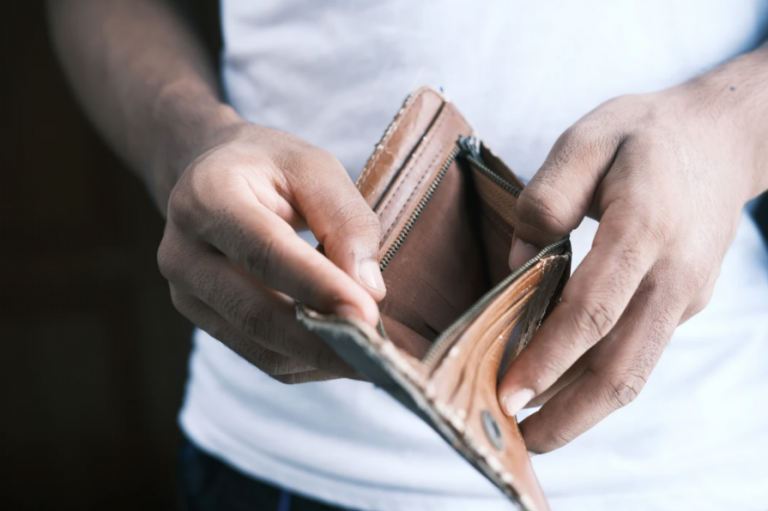Bankruptcy has significant long-term consequences for your financial health, but filing bankruptcy is an intelligent resource if your bills are mounting and you can see no other way forward. Before making a decision, however, there are many things to consider. Here are five questions you should ask a bankruptcy attonrney before moving forward.
Which Type?
You may want to choose to file Chapter 7 bankruptcy if your income is steady and you have assets like a car or house to protect. Also called straight bankruptcy, a Chapter 7 filing requires you to sell most assets, but you can keep work tools, clothing, and other belongings. Your other option, a Chapter 13 filing, works like a debt consolidation program and involves setting up a repayment program through a judge.
How Will You Pay?
Ironically, filing for bankruptcy costs money. If you’re already deeply in debt, you may find it hard to pay these expenses. If paying is beyond your means, you may want to consider contacting a nonprofit credit counseling organization and use their assistance to create a debt management program instead.
Do You Qualify?
Your bankruptcy attorney can help you determine if you qualify to file and which type you qualify for. A Chapter 7 filing, for example, involves a means test to determine whether you can pay your debts based on your income and expenses. If the test proves you have significant disposable income, you may not qualify. Your bankruptcy attorney can tell you the specific income and expense thresholds for your jurisdiction.
Will It Work?
Student loans are among the many types of debts that cannot be discharged by bankruptcy. If you owe back taxes, alimony, child support, or court-ordered restitution or fines, bankruptcy won’t help you either. In these cases, you may have few or no options for eliminating your debts, but a lawyer can tell if there’s anything you can do.
Can You Live With It?
While bankruptcy is sometimes the best option, it can be difficult as well. A bankruptcy is shown on your credit report for up to 10 years and can make it difficult to get an apartment, loan, or insurance. It can even cause an employer to turn you down for a job. Additionally, the filing is public record, so anyone can find out about it. While bankruptcy can eliminate some problems, it also creates concerns that stay with you for years.
Chapter 7 and Chapter 13 bankruptcies are options you should consider if your debt is out of hand, but they aren’t your only options. Before you file, ask the right questions, understand the significant consequences, and get the assistance of a bankruptcy lawyer you can trust. Once you do file, you can start taking steps to recover financially.
One of the reasons why people might put off filing for bankruptcy is because they worry they will never be able to recover financially after the fact. For example, people worry about their credit score always being poor because of a bankruptcy history. Don’t let the fear prevent you from talking to a bankruptcy lawyer. Bankruptcy can be a source of financial freedom, and for many it can be the right path forward. Here are some options for recovery after bankruptcy that you can discuss with your legal team.
Use a Prepaid Credit Card
These are “safety net” credit cards that allow you to build up your credit again without a huge risk to the lender. You, as the cardholder, can load money onto the card and then use it to make purchases. It still counts toward your credit score, but you don’t run the risk of racking up more debt. After you use a prepaid card for a while, you might try a regular card again. Remember that the fees and interest rates on cards will be high for you at first because banks will see you as a risk. However, if you use the card for small purchases and immediately pay them off, you’ll never pay a dime in interest and your credit score will gradually improve.
Avoid Rent-to-Own and Payday Loan Agreements
Because you have limited credit after bankruptcy, you might be tempted to use payday loans or use rent-to-own agreements to get the things you want. However, these often result in huge fees, more debt, or lost income in the future, and you need to keep your money close as it works for you. These might even get you in legal trouble again, or work against your bankruptcy agreement.
For example, don’t try to get into a new house on a rent-to-own agreement. Instead, save your money for a future downpayment and scrupulously try to improve your credit score. In just a few years, you’ll have a big nest egg for a downpayment and your credit will allow you to get a conventional or government-backed FHA loan like most home buyers.
Apply for Some Sort of Long-Term Loan
The next step in getting better credit is to apply for a loan that is not revolving. Credit cards are not a fixed loan—they revolve based on your spending. Fixed loans are for things like cars, furniture, dental work, or other personal items.
You might decide to get a car loan. Don’t buy a very expensive vehicle that will take years to pay off. Instead, look for a basic car that is just a few thousand dollars and get a loan for it. It’ll be easier to get approval for a lower amount, and even though your interest rate will be high, you will still end up being able to pay off the loan easily. Never miss a payment; your credit score will thank you.
Be a Timely Payer
Next, you need to make sure you pay every bill on time. Rent checks should never be late. Mandated court payments to debtors should always be clear. Keep in mind that if your Chapter 13 bankruptcy payments are too financially strenuous, you can speak with your lawyer about legal options.
Don’t Forget About Savings
Saving is just as important as spending. The more assets you have can make your credit score improve because it shows you have a low debt to income ratio. Also, having savings can prevent the necessity of going into more debt for emergencies like flat tires and medical bills.
Applying for bankruptcy can be a stressful time, and the process will come with many questions. However, by talking to an attorney, you can get the answers to your questions and start making a long-term plan for financial recovery.


















